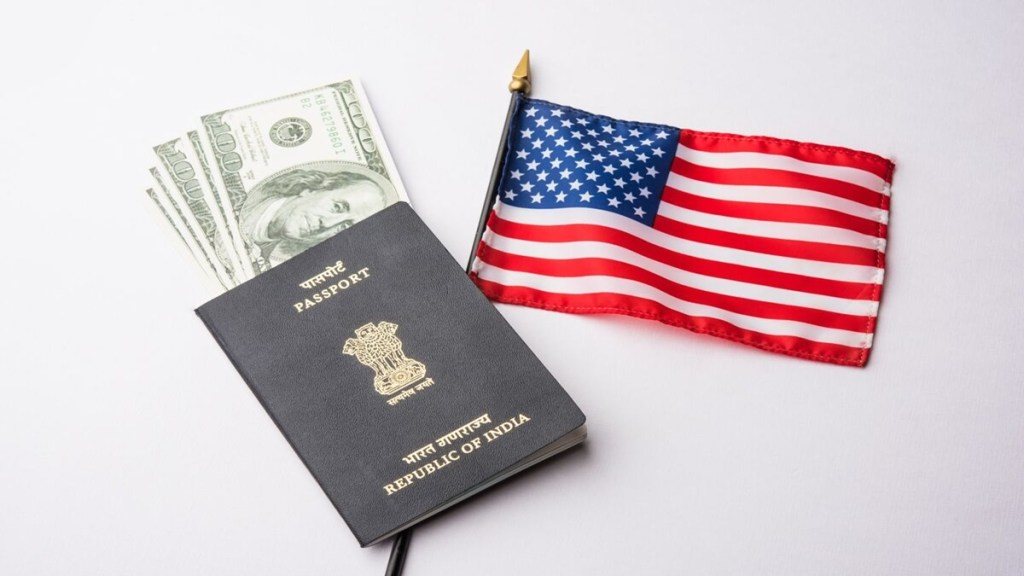The H-1B visa program is likely to witness significant changes soon. The US Department of Homeland Security (DHS) and the US Citizenship and Immigration Services (USCIS) have filed a regulatory filing seeking a review of a proposed rule titled ‘Weighted Selection Process for Registrants and Petitioners Seeking To File Cap-Subject H-1B Petitions.’
A similar-looking proposal titled ‘Modification of Registration Requirement for Petitioners Seeking To File Cap-Subject H1B Petitions’ was initially floated by the Department of Homeland Security in January 2021, when the lottery system was prevalent in the selection process of H-1B registrations. Currently, the beneficiary-centric process is followed and the lottery process has already been discontinued.
H-1B New Selection Process
The full details of the H-1B visa Weighted Selection Process are still not made public. It appears the proposed rule is likely to incorporate selection criteria based on wage levels, education qualifications, or other merit-based factors.
The proposal is to establish a wage-based allocation process and select the H-1B candidates based on their wages – the higher the salary offered by the US firm, the higher will be the chance of getting an H-1B Visa.
2021 proposal stated, “Prioritizing wage levels in the registration selection process incentivizes employers to offer higher wages, or to petition for positions requiring higher skills and higher-skilled aliens that are commensurate with higher wage levels, to increase the likelihood of selection for an eventual petition.”
New Proposed Ranking Process
In 2021, the proposed process was to first select registrations based on the highest Occupational Employment Statistics (OES) prevailing wage level that the proffered wage equals or exceeds for the relevant Standard Occupational Classification (SOC) code and area of intended employment.
Essentially, the ranking and selection were to be based on wage levels. USCIS would rank and select registrations based on the highest OES wage level, starting with OES wage level IV and descending to OES wage levels III, II, and I. The proffered wage is the wage that the employer intends to pay the beneficiary.
Why New Rule
US authorities argue that prioritizing wage levels in registration selection encourages employers to offer higher wages or petition for positions requiring higher skills, increasing the likelihood of selection. Similarly, it disincentivizes abuse of the H-1B program to fill lower-paying, lower-skilled positions, which is a significant issue.
The H-1B program offers 85,000 annual visas for specialty occupation workers, including 20,000 reserved for advanced U.S. degree holders. But, as demand exceeds supply for H-1B visas, a Weighted Selection Process, DHS prefers cap-subject H-1B visas for beneficiaries earning the highest wages relative to SOC codes and intended employment areas.
DHS is prioritizing the highest-skilled or highest-paid beneficiaries for new H-1B visas, ensuring their admission aligns with the program’s objectives.
The proposed rule aims to allocate restricted H-1B cap numbers to higher-skilled, higher-valued, or higher-paid foreign workers, rather than allowing cap numbers for lower-skilled or lower-paid positions.
Implications
The H-1B visa program is once again caught in the midst of the ongoing immigration crisis in the United States. Americans despise the H-1B program as they feel foreign workers are taking over their jobs. However, the popularity of the H-1B program outside the US is huge, as it gives thousands of foreign workers an opportunity to work in the world’s leading US companies.
The H-1B nonimmigrant visa program is essentially meant for the temporary employment of foreign workers in specialty occupations, requiring specialized knowledge and a bachelor’s or higher degree.
H-1B program is intended to help U.S. employers fill labor shortages in positions requiring highly skilled or highly educated workers. Therefore, a wage-level-based selection is also consistent with the administration’s goal of improving policies such that H-1B classification is more likely to be awarded to petitioners seeking to employ higher-skilled and higher-paid beneficiaries.
The silver lining in this new proposal is that the proposed plan could eventually enhance the average and median wage levels of H-1B beneficiaries who will be selected for further processing under the H-1B allocations. Immigration attorneys are warning that a change in the process could raise wages beyond a company’s budget, leading to a decrease in the number of H-1B workers available to employers.

